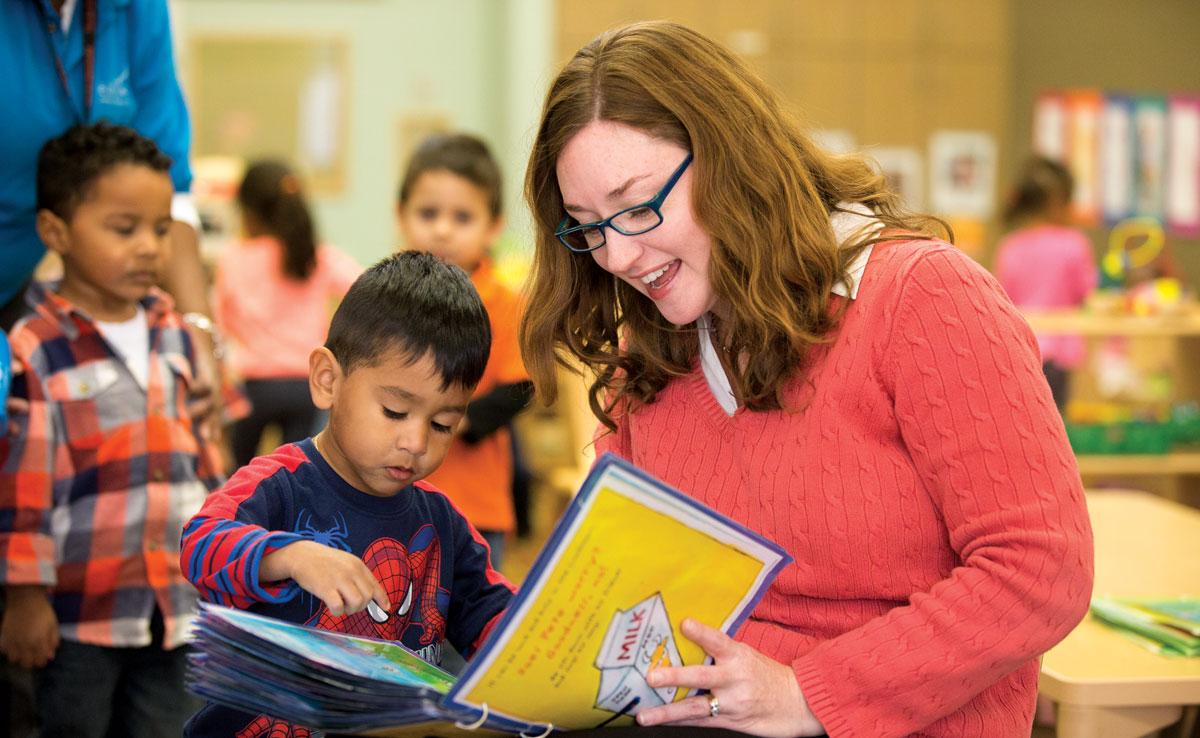Studying the Lives of Children & Families at Risk
Monday, November 9, 2015

Amanda Sheffield Morris believes the entire family system should be understood in order to affect the success of children from the early years through their young adult lives. She has had an interest in emotional development and the factors that affect adjustment and resilience since her undergraduate studies.
As the Bryan Close Endowed Chair in Early Childhood Development in the College of Human Sciences, Morris focuses her research on disadvantaged, high-risk families and children during important transitions in their lives. While much attention has been placed on early education and its role in school readiness, Morris believes young children’s social-emotional development is the key to success and that requires supportive environments in families.
That passion has led Morris to be the principal investigator on six current projects studying the wellbeing of children, youth and their families primarily in the Tulsa area.
Morris and her team are evaluating and providing program development expertise for the Community Action Project’s Head Start and Early Head Start Centers, and Tulsa Educare. She is currently studying the effectiveness of dual-generation education programs directed by Tulsa County’s Community Action Project.
CAP’s CareerAdvance® program supports the career development of low-income parents while their preschool children are enrolled in Early Head Start and Head Start centers. The program is the subject of the Family Life Study, which includes implementation, outcomes and impacts.
Led by researchers at the Institute for Policy Research at Northwestern University, the Ray Marshall Center at the University of Texas at Austin, Columbia University and New York University, the study is funded by the U.S. Department of Health and Human Services’ Administration for Children and Families.
Morris is the principal investigator leading data collection, interviews and focus groups to evaluate the effects of the workforce development program.
“The Family Advancement Study is exciting to me as a researcher because it is a randomized control trial,” Morris says. “It’s a longitudinal study with multiple waves of data collection. We are following families and a comparison group to provide more accurate information on the success of the program.
“We have been able to study the impact of dual-generation parents’ perceptions of their involvement and evaluate the effect of the program on children’s development in such areas as school readiness and socio-emotional development.”
Morris points out the benefits the research projects have for OSU and its faculty.
“OSU has received more than $1.5 million in grants for these projects,” she says. “Research projects at this level not only provide grant funding and data for publications and presentations, but also opportunities for student training and partnerships with leading researchers in the field.”
Morris is partnering with Jennifer Hays-Grudo and her research team to evaluate the impact of Tulsa Children’s Project programs on children and their parents who attend three Educare Centers in Tulsa.
Working to break the cycle of poverty, Educare provides high-quality early childhood education and care to low-income families. Several projects aim to improve mental health among parents and staff at the three sites.
“Parent and teacher relationships are important predictors of children’s overall adjustment, with more supportive and less coercive adult-child relationships being more beneficial,” Morris says.
“The Super Parents Program, led by the Tulsa Children’s Project, improves parenting through mindfulness training, stress management, and basic parenting skills,” Morris says. “Our research will evaluate the training and impact of positive parenting on the families.”
With funding provided by the George Kaiser Family Foundation and the Centers for Disease Control and Prevention, Morris is looking forward to evaluating new TCP initiatives.
One is a training program for caregivers of infants and young children up to 24 months known as Attachment and Bio-behavioral Catch-up (ABC) Intervention. Trained staff conduct home visits over 10 weeks teaching caregivers how to respond to children and develop appropriate nurturing skills.
“We are looking forward to working on ABC to see how well it works with high-risk families,” Morris says.
Morris will also study the effectiveness of Legacy for Children™, a parenting group for pregnant moms developed by the Centers for Disease Control and Prevention.
“Legacy is a three-year program focused on responsive parenting while building a social-support system for moms,” Morris says.
“It is exciting to bring cutting-edge early childhood programs and research to the Tulsa community,” says Morris. “Partnering with community agencies allows us to evaluate the impact of these programs on a large scale, with the goal to take such programs beyond Tulsa to the broader Oklahoma and national community.”
